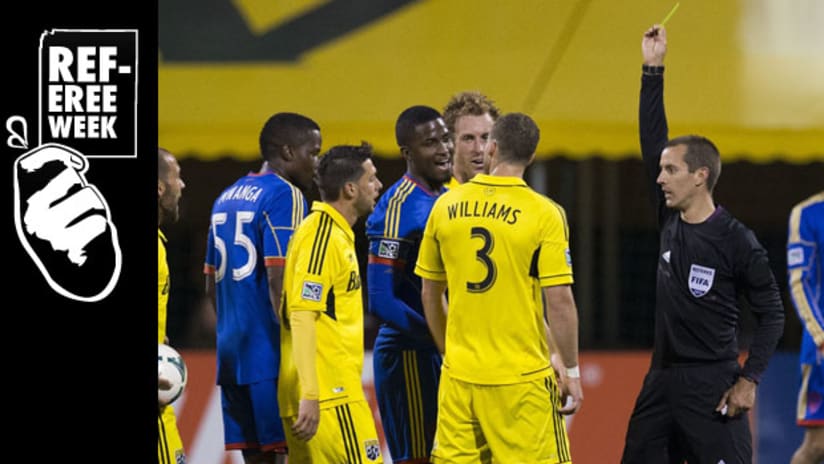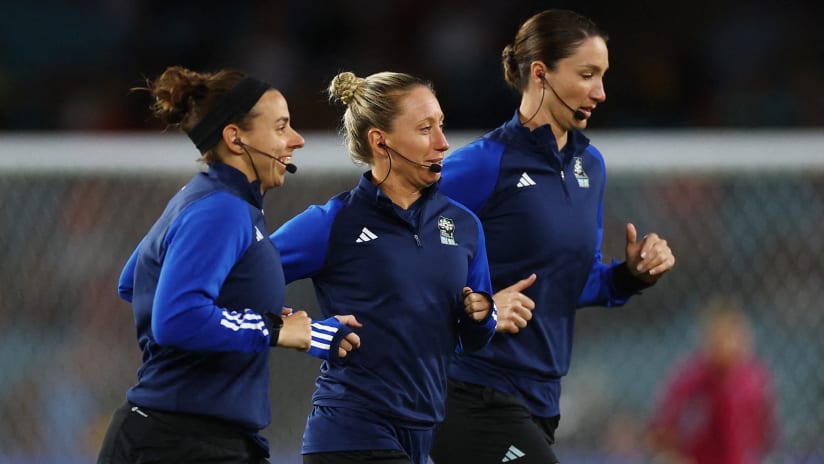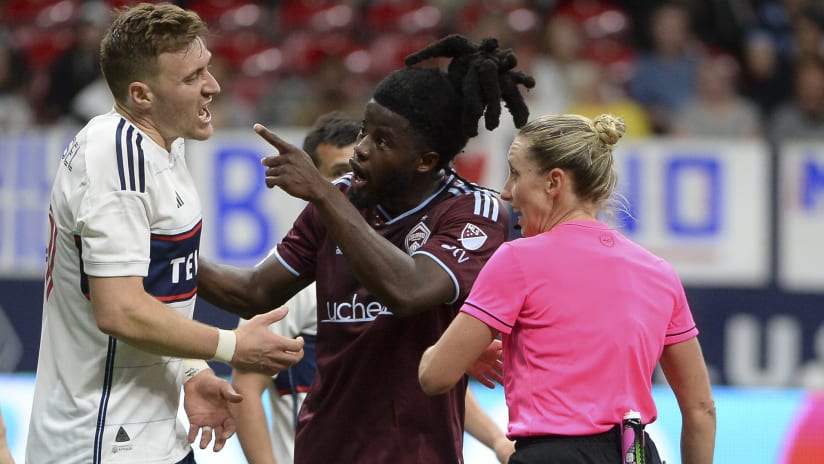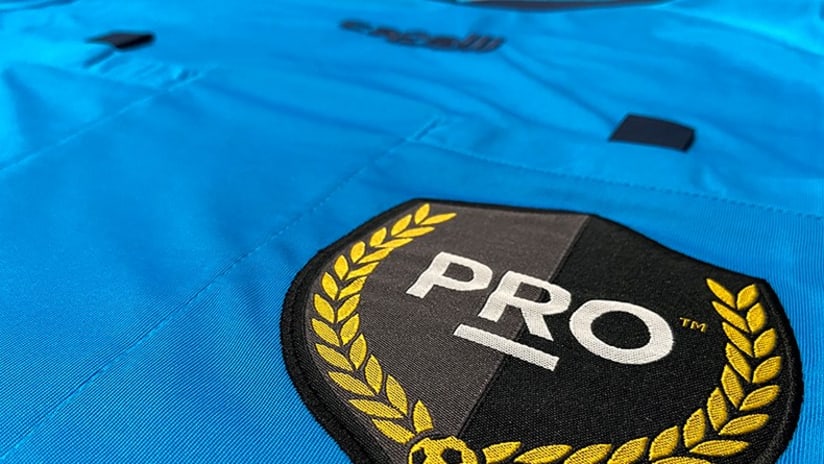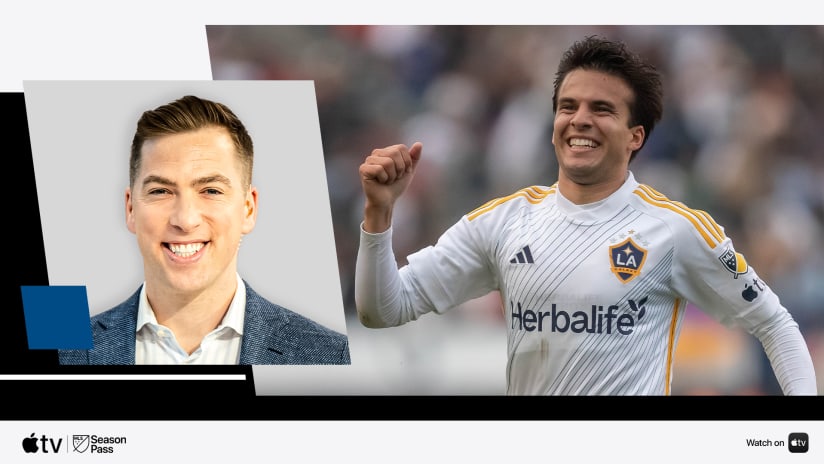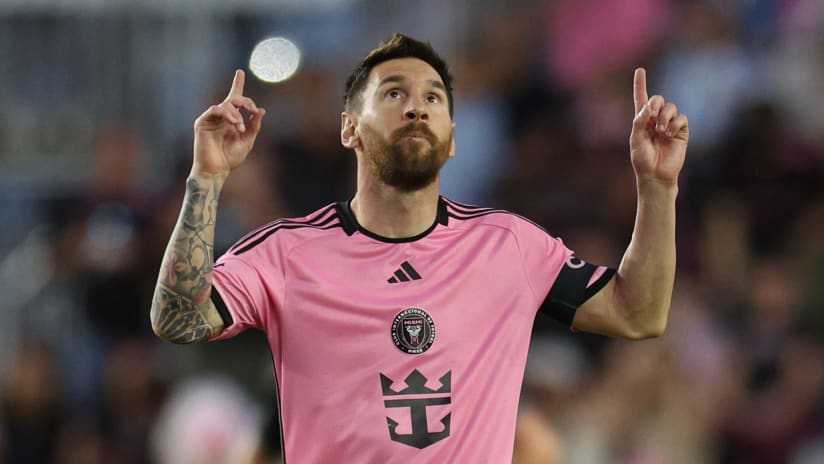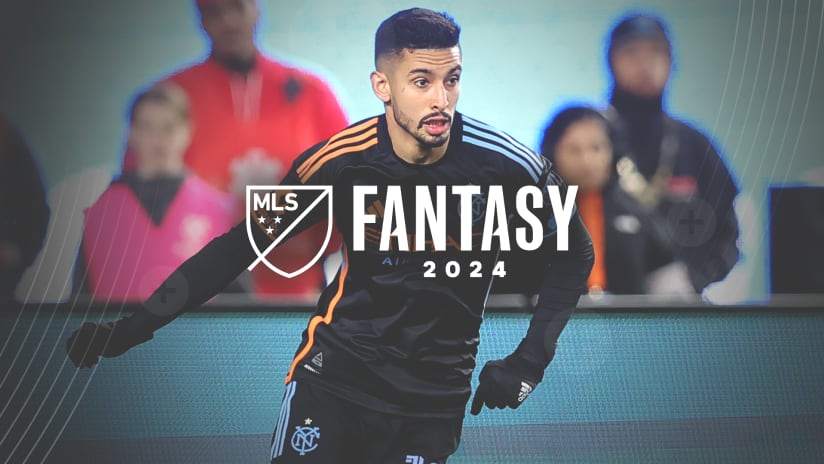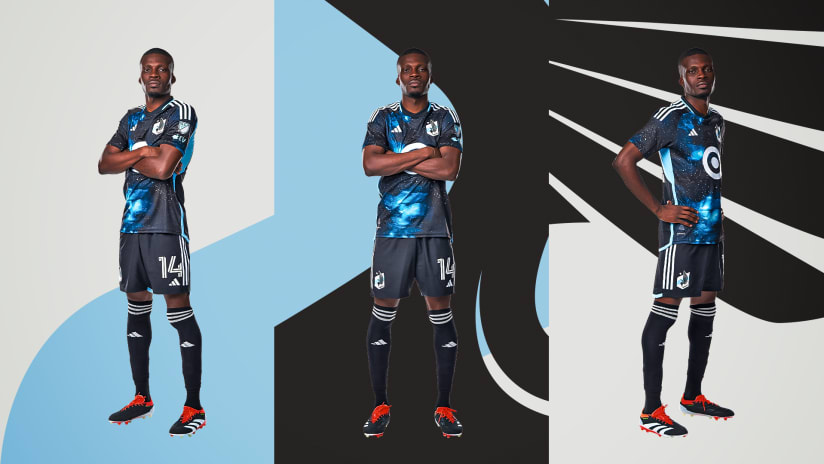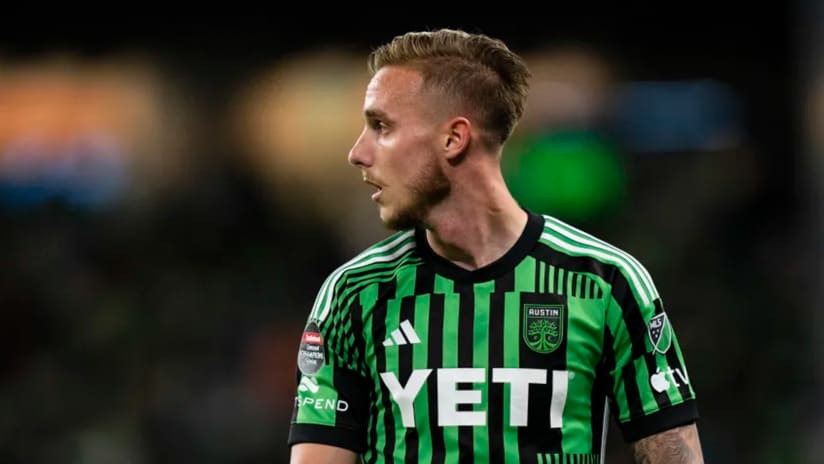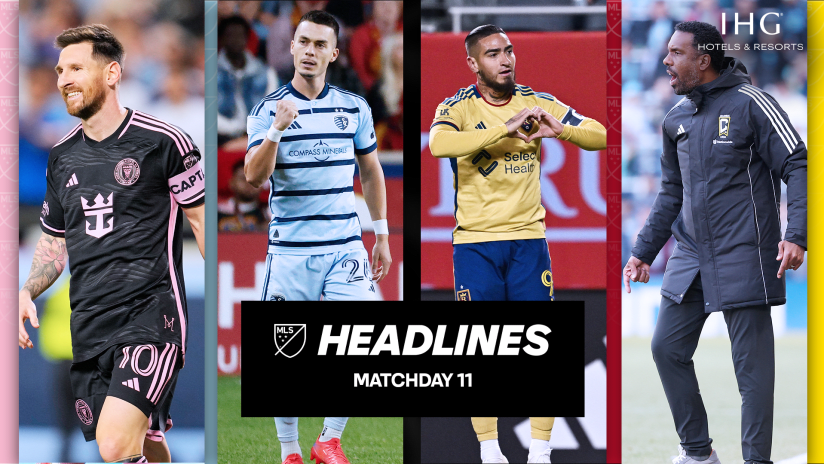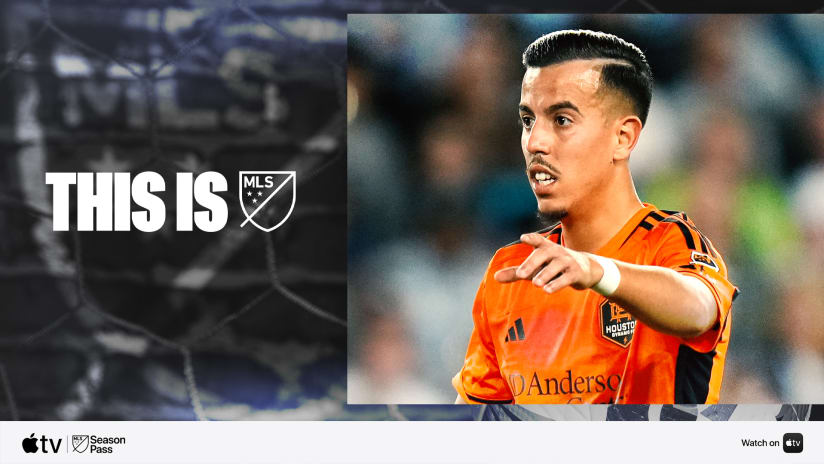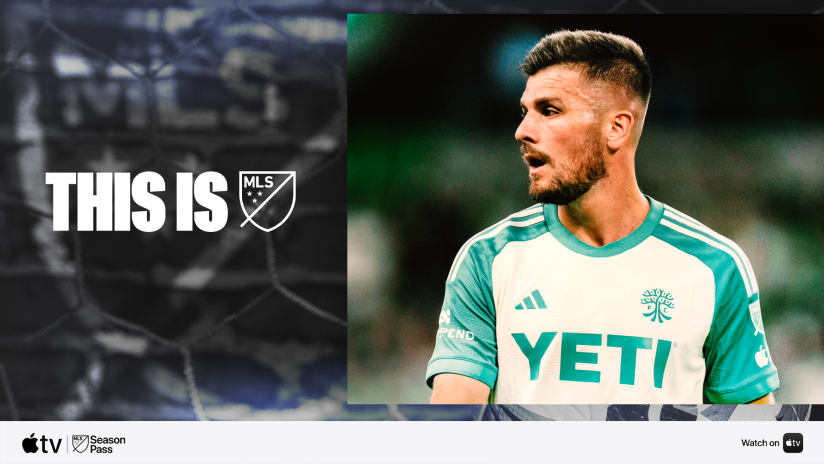NEW YORK — Nelson Rodriguez wants you to see something, so he turns his computer screen 45 degrees to give you a better view. It's a video clip of a bad tackle. As you watch the clip, frame by frame, you cannot help but cringe. Studs are up. The perpetrator is flying.
"Now," Rodriguez says, "let me show you how this play looked live." He calls up another video clip and hits the "play" arrow. You can't believe it's the same play.
Rodriguez is Major League Soccer's executive vice president, competition, technical and game operations. He also chairs the league's Disiciplinary Committee. He is sitting in his midtown Manhattan office on this morning, describing what it's like to lead a committee that everyone knows is needed, but no one seems to like.
The incident he has shown you is a recent play involving Chris Tierney of the New England Revolution, who went in hard on Sébastien Le Toux of the Philadelphia Union. After reviewing the foul, which did not even earn Tierney a yellow card in real time, the Disciplinary Committee suspended the New England captain for one game.
WATCH: Tierney's hard tackle on Le Toux
Revolution coach Jay Heaps was none too pleased with the Committee, saying, "It's a disappointing ruling. I looked at the foul a few times on tape. It's a challenge that I can't believe is actually being reviewed. It feels almost like it's re-refereeing the match."
Rodriguez gets it. Having coached at the college level, at Lafayette College, and having worked on the team level with the MetroStars in the late 1990s, he understands what Heaps is saying and the obvious emotions involved when a call goes against your player.
READ: Did Gordon deserve red for challenge in Portland? You make the call - resolved!
And there's another side of Rodriguez that has to understand the feelings of the referee and his assistants. He needs to show respect for the mission they're trying to fulfill, saying, "You don't want the referees even subconsciously thinking, 'If I don't deal with this now, the Committee will deal with this later.'
"We also don't want to suggest by our actions that they've gotten something wrong. We don't want to undermine their credibility on the field by making decisions. That adds to the complexity of the job."
Peter Walton, the general manager of the Professional Referee Organization (PRO) says, "I'd love to put the Disciplinary Committee out of work. Because if they don't have to review anything, that means our boys have gotten everything right on the day. But that's utopia. That will never happen. It's impossible for the referee to see everything."
READ: The Word: One year later, the trials and tribulations of MLS and PRO
It must also be pointed out, Rodriguez has bosses he answers to. Bosses who want to see things like overly physical play minimized, diving and simulation eliminated. Rodriguez is fully aware that technology has had a huge impact on the Committee and its mission. Where it used to take days for video clips to be recorded, edited and transmitted, it now takes minutes. That doesn't even take into account things like camera phones that give every fan in the stands the chance to record something that's potentially incriminating.
"The Commissioner and the Board of Governors provide a specific direction for the Committee," says Rodriguez, who has worked in several capacities for MLS since 2001. "In the last two years, that direction has been for a more active disciplinary body.
"There's a balance you're trying to achieve between not re-refereeing the game, but serving as a backstop for the referees and for the players and their safety. It's mostly about the players' safety. There are times when it's about protecting the integrity of the league or the sport. But most times the committee is acting with an eye toward player safety."
Rodriguez and Heaps can agree on one thing, and it's a big one: There is a need for calls to be reviewed. What happens in a typical professional soccer game, on and away from the ball, is too much for any four-man officiating crew to see with 100 percent clarity.
MLS DISCIPLINARY COMMITTEE PRINCIPLES AND PARAMETERS
"There's been a Disciplinary Committee going back as far as I can remember," says Heaps, who played in the league from 1999-2009. "And I believe it's necessary to have a Disciplinary Committee. It just seems now, they're reaching farther into the games. And that's a slippery slope. No one watches more film than coaches. We see a lot of stuff when we're watching video, and you do begin to wonder exactly what's being reviewed."
So, how does the Committee decide? There's no simple answer.
"It starts prior to each game," Rodriguez explains. "Every game has at least two live observers. Live does not necessarily mean in-stadium. Most of our work is done through broadcast feeds. But by the end of the weekend, that number grows to four or five, who've seen every game.
"During the course of the game, the observers take notes. They'll make notes of plays that must be reviewed, or maybe will need to be reviewed. As a general rule, we review all yellow and red cards to see if further action is warranted and then they vote."
READ: Referee Week: Road to professional ranks a long one for aspiring referees
Disciplinary Committee: Unique actions for unique plays
The Committee is made up of five men. Three are former MLS players, two are former coaches and one is a former MLS referee. Rodriguez supervises the Committee, but is not a voting member. The five voting members work in anonymity (to prevent lobbying) and, Rodriguez says, there have been past Committee members who have had to give up their positions upon re-entering the soccer world in a coaching or playing capacity.
"All of the plays in question are catalogued and clipped," Rodriguez continues. "And those video clips are distributed to the Committee members on Sunday evening. We have a conference call on Monday morning where we go through a checklist. The incident is cited, the parameter under which it's being reviewed is recognized, and then individual members start to give their view of the play.
"Once all five have talked through the play, we ask, for example, 'Do you see this yellow card as a red card offense?' and they vote."
Rodriguez stops himself.
"Let me also say," Rodriguez says, "there have been times where all five members have agreed that a yellow card should have been a red card, but elect not to suspend the player because they are not certain the play was so egregious to warrant further punishment. In their mind, that would be re-refereeing the game, and they're cognizant of that."
Still, the beat goes on. Just this week, five actions were handed down by the Committee. It seems rarely a week goes by where the Committee doesn't issue some punishment.
That's by design.
"We had that unfortunate year [in 2011], where in a very condensed period of time, we had three very high-profile injuries to Steve Zakuani, Javier Morales and David Ferreira," says Rodriguez. "And we also had Branko Boskovic, a Designated Player at the time, get injured in an Open Cup match and there was great public commentary about the physical nature of the league.
"I believe it was an aberration. We haven't seen anything like that in any of our other 17 seasons, but the league was gaining a reputation for overly physical, negatively physical play, as opposed to a reputation for what it is, which is an extraordinarily competitive league. The Board of Governors came to the Discipline Committee and said, 'We need to do something to modify this kind of play.'"
READ: Referee Week: Kenny Cooper's goal resolved - or is it?
No one, not the league, the coaches or the referees believe there is a perfect system. As Heaps says, "There's always going to be a large gray area."
But all three agree, there's needs to be a committee who's job it is to keep every aspect of the game honest.
"I hope there will continue to be a culture change," Rodriguez says.
He is talking about a greater sense of awareness among players that there's little to no chance they'll get away with any kind of violent conduct simply because they're adept at doing things out of the referee's sight lines. And little to no chance they'll get away with any form of diving or simulating, because there are many cameras and many camera angles to review those plays. And Rodriguez also wants the referees to not feel they're being undermined.
"I think there are plenty of officials who would raise their hand and say they got a call wrong, or say they're not sure if they got a call right because they didn't have the perfect angle," Rodriguez says. "If we find the mechanism that allows them to do that, I think it would humanize them, and make players, coaches and fans more forgiving."

